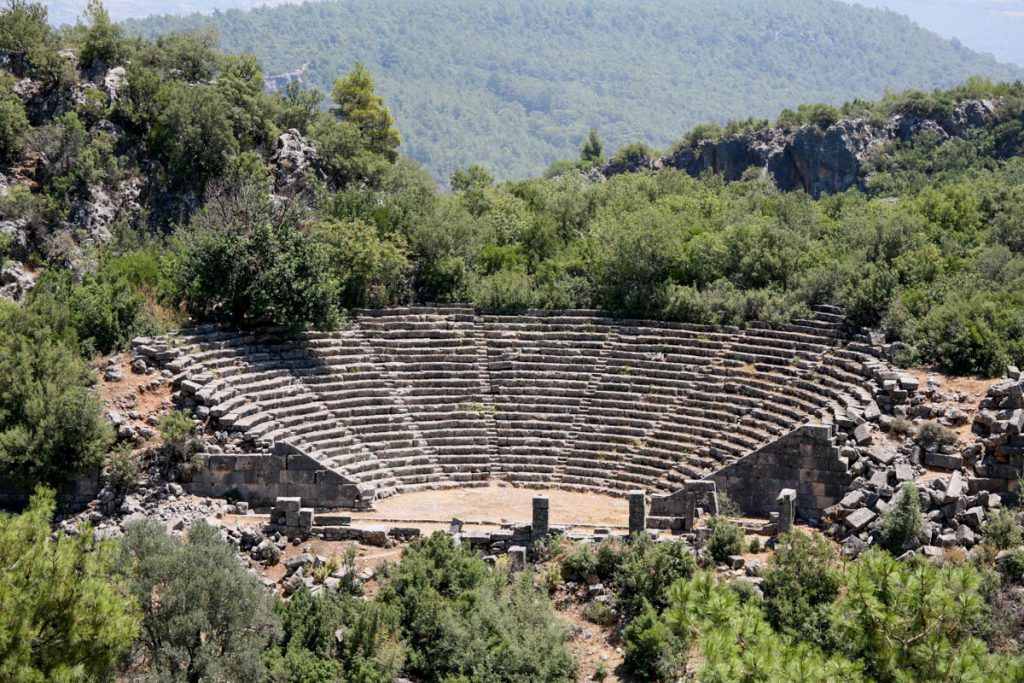Pinara was a large city of ancient Lycia at the foot of Mount Cragus, and not far from the western bank of the River Xanthos.
The city, though not often mentioned by ancient writers, appears from its vast and beautiful ruins to have been, as Strabo asserts, one of Lycia’s largest, its chief port city until the harbor silted up to form the reed-filled wetlands of today. Yet another rare mention of the city in ancient sources is in connection with the help it provided, along with several other Lycian cities, to Pixodarus of Caria. Pinara was a member of the Lycian League, in which it held three votes. The city surrendered to Alexander the Great in 334 BCE. After Alexander’s death, the city fell to the kingdom of Pergamum. Pinara became a Roman city when Pergamum was willed by its last king Attalus III to the Roman Republic in 133 BCE. The city enjoyed prosperity during Roman rule, but was badly damaged by earthquakes in 141 and 240 CE. In the first occurrence, the city is recorded to have received a contribution from Opramoas for the repair of public buildings.

















